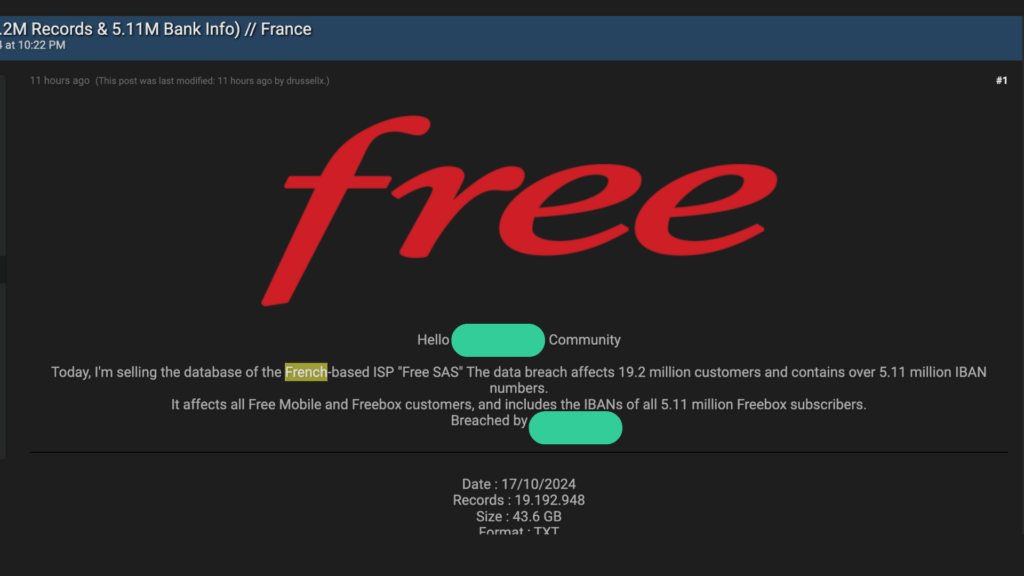The data leak after a cyberattack against the Free operator is currently being reused by hackers. A person targeted by scammers tells us about their scheme.
Name, first name, address, IBAN… all this data is currently being reused by scammers. The cyberattack against Free revealed at the end of October allowed everyday cybercriminals to obtain a sufficiently “fresh” and rich database to update their operations with new scams. The media space granted to the hacking of the French operator and the anxiety that such an announcement can produce are widely exploited during these schemes. Two recent examples prove this to us.
The so-called banking advisor begins by addressing the subject of recent cyberattacks, mentioning the data leak which affected Free, but also the claims of an attack against SFR, a competing operator. He continues with more alarming examples, telling his interlocutor that the IBAN can be misused for fraudulent purposes, starting with illicit direct debits, and concludes by pointing out that the young man himself would have been a victim of this type of scheme. .

Cyberattacks: when humans are the weak link
With U-Cyber 360°, the French company Mailinblack allows you to protect your organization and educate your employees in cybersecurity.
From the password manager to email security, continuing training and attack simulations, this solution brings together all the tools to prevent cyber risks.
« He alerts me to three ongoing withdrawals from my bank account, made by a casino in Germany. These transactions would be blocked for the moment, but the fake advisor would need to know the amount in my bank account to ensure that he can avoid any withdrawals », Testifies Pierre.
IBAN, address… the scammer mentions all the data
The approach may seem crude, but Pierre explains that everything is well delivered and expressed with professionalism. When the person concerned asks him for proof, the so-called advisor dodges the questions and goes back to talking about banking security. A good example of data reuse by the scammer: he talks to him about his personal information, citing his address and the numbers of his IBAN, to assure him that he is managing his bank account properly.
« He’s starting to make me feel guilty, telling me that he’s going to have to let the payments go through due to lack of information. », adds Pierre. “ I end up lying to him by telling him that I only have 80 euros in my bank account. His tone instantly transforms “. The scammer insults his interlocutor, telling him that he wasted his time for a ridiculous amount of money before hanging up.


Other people have been targeted by these scams usurping the online bank Revolut. On the social network Reddit, a user explains having received messages followed by a call from a fake advisor. The scenario remains the same, using the same arguments linked to fraudulent direct debits.
How to Spot These Fake Banking Advisor Scams
Pierre adopted several good reflexes: question his interlocutor, ask for proof, lie to him.
If your advisor would like to get in touch with you, invite them to contact you directly via your bank’s official website or app. Communications with your bank will always appear in your secure personal space. Giving him false information also allows you to see to what extent he is able to respond.
In general, we advise you not to respond directly. Banks rarely contact you by telephone, and if in doubt, it is better to take the initiative to contact them through another channel. A few minutes of your time are worth more than financial loss.
Source: www.numerama.com


